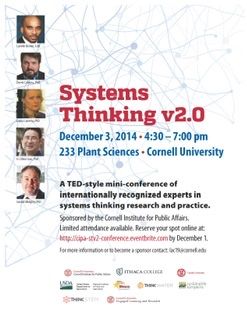Systems Rule!
 Erin Powers
·
1 minute read
Erin Powers
·
1 minute read
You can interpret that title either way... Today I discuss the Systems Rule of DSRP (see DSRP Primer for more info). I'll keep it brief because Derek Cabrera wrote a great post about part-whole systems that ties into ongoing systems thinking discussions about holism vs. reductionism and emergence.
However, it is worth noting that the Systems rule holds that every thing or idea can either be broken down into parts, or can be part of a larger whole. The idea is that we need to be able to disassemble systems into parts (“splitting”) and combine parts into larger wholes (“lumping”).
In sociology, for example, classical rational choice theorists are often accused of being too reductionist—of reducing the explanation of human behavior to self-interest. At the same time, functionalist theorists were accused of focusing too much on the whole and neglecting micro-level factors. In truth, we need scholarship that focuses at all levels: micro, meso, and macro. We need in particular to connect micro-level factors via transformational mechanisms to macro-level outcomes. In sociology, these transformational mechanisms are often constituted by the relationships between agents.
I like this graphic from Systems Thinking Made Simple, with splitters on the left and lumpers on the right. The idea is a productive middle ground. We need to be able to deconstruct and to reassemble, to see wholes and parts in a fractal fashion.
Forget splitters and lumpers...Splumpers unite!
.png?width=150&height=150&name=CRL%20GOAT%20Logo%20(4).png)


